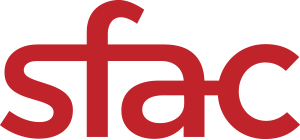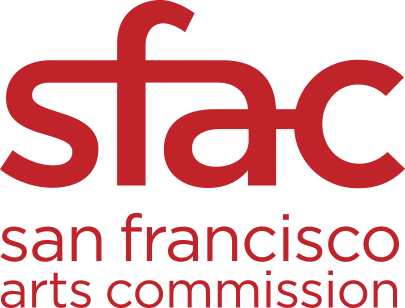Questions and Answers from the Prop E & Arts Impact Endowment Information Sessions:
Absolutely. Please visit this link for a PDF of the presentation.
A: The cultural ambassadors are individuals deeply connected to the communities detailed in our Cultural Equity Endowment legislation. They are supporting us in building bridges and trust in communities where we would like to see increased applications. We hope this will go a long way in demonstrating that staff are here to support people through the application process.
In addition, we have to consider the demographics of the City. The Asian American population equals over 30 percent in San Francisco. We hope that the Cultural Ambassador program helps to bring racial parity to our applicant pool. Conversely, we have a decreasing African American population largely due to the cost of living in San Francisco. We are exploring how to attract and retain African American and Native American artists as well as Latinx and Asian American artists.
A: The Cultural Center Endowment primarily goes towards core operating support. A much smaller amount of funding goes towards maintenance and repair.
A: The Economic Recovery Task Force recommendations guided us on the most urgent and current needs of the arts and culture sector hit hard by the pandemic. The Task Force used those recommendations, as well as input from town halls, surveys and feedback from community groups, to help guide the development of the initiatives around Guaranteed Income, Reopening Safely, the Sankofa Initiative for arts education and the Arts Hub.
The CSAP priorities stand and define the allocation of the Prop E funds and will continue to do so until it sunsets in 2024.
A: There was no conflict of interest because applications for the Arts Impact Endowment grant categories were reviewed administratively by a panel of City staff who represented several different City departments. Community members did not participate in the panel process.
A: Our partner organizations administering the grants did not disaggregate demographic information beyond what was presented.
A: Eligibility for this round of AIE funding are for organizations that have never received funding by SFAC or Grants for the Arts. We want to reach organizations that are developing and historically not had access to City funding.
Cultural Equity Endowment grant funding recommendations will go to the Commission for approval in the spring of 2022. We anticipate that AIE funding recommendations will follow. If an applicant applied to the CEI programs and didn’t receive funding, they will be eligible to receive funding from AIE.
A: The short answer is no. If your organization (or you as an artist) has ever received funding from SFAC and/or GFTA, then you are ineligible for these funds. We want these funds to be a first point of entry for emerging organizations and artists who have never even applied for a grant before or never received funding from SFAC or Grants for the Arts. It's an opportunity for us to reduce the barriers to entry and support artists, organizations and communities that have historically not had access to City funds.
Also, this eligibility criteria applied only to the Arts Impact Endowment, which is a smaller pot of funding of the five Prop E buckets. It does not apply to the eligibility criteria for our Cultural Equity Endowment funds.
A: We understand the needs throughout the arts ecosystem and are taking this opportunity to use the Arts Impact Endowment to create a pathway for emerging artists and organizations that have historically not had access to City funding and to outreach into communities from which we have historically received less applicants. We hope this pilot will increase competencies in cultural organizations and art forms that have not been previously funded.
A: We have a strong commitment to our Cultural Equity Endowment legislation, which gives us the opportunity to prioritize organizations deeply rooted in historically marginalized communities. We will likely create scoring criteria that references communities outlined in the Cultural Equity Endowment legislation.
A: Our budget cap for arts organizations is an average operating budget of $1.5 million, or less, based on the two most recently completed fiscal years.
A: Once the AIE guidelines are released, please contact a program officer to learn more about the types of artists and organizations you may fiscally sponsor.
A: There has been a lot of interest in continuing the Guaranteed Income program. We funded the pilot and are proud to have launched the first guaranteed income program for artists in the nation. YBCA administers the program and has received additional funding from Start Small Foundation. They may be able to raise additional funds to continue and expand that program, but SFAC is pivoting these funds into this year's Arts Impact Endowment initiatives.
A: We funded the development of the platform which will be launched in early 2022. YBCA will support the operations of the Arts Hub moving forward.
A: Yes, this is a pilot program and will be evaluated at the conclusion of the program.
A: Yes, the priorities in the Cultural Services Allocation Plan is allocated across four priority areas: arts education, space and capital, core support for arts organizations, and individual artists. Those are set until 2024 and at that time there will be another community-engagement process to determine the priorities for the next allocation plan.
A: For the Arts Impact Endowment grant, the applicant has an opportunity to define arts education and identify the community or constituency they will engage in a learning environment through creative exploration. That could range from creative exploration with young people, with seniors, in community centers, with cultural bearers and communities that have cultural assets.
A: We welcome all of you to join in on the process. Please visit this link to learn about becoming a panelist. There is a brief panelist application where you can share your background, expertise, availability, and how you define racial equity; we want to make sure our panelists are in alignment with our racial equity and cultural equity practices.
The selection process occurs once applications are submitted, and we have an opportunity to review proposals. We want to align panelists’ backgrounds and skill sets with the applicant pool and there is a broad range of needs in all creative practices, from arts administration; understanding architecture, design and space needs; economic and cultural development and an understanding of the San Francisco arts ecosystem. We also look for a willingness to read and score applications and deliberate in the public review panel.
Our grant deadlines have closed, and we will be reaching out to applicants between now and January 2022. If you don’t hear from us, it may mean that the applicant pool isn't necessarily ready for your skill set, but there may be an opportunity to serve in the next round. All applicants that submit to be in our panelist pool will be on a list that we can select from for two years.
A: This round of Arts Impact Endowment applications will be streamlined through one set of guidelines and one application. We encourage anyone who needs a special accommodation and support with applying to contact a program officer at least two weeks prior to the deadline so that we can work with you to support your application submission and provide individual accommodations.
A: We recognize that there are talented artists and producers and cultural workers that are housing insecure, so we added an opportunity for an artist to self-identify that this is the case for them. Revised application instructions for the San Francisco Artist grant directed people in this situation to a form on our website to self-attest their housing situation.
A: Please reach out to our colleagues at GFTA so they can comment on their own budget and funding.
A: In FY21, the total Prop E funds received was around $6M. That includes the General Fund backfill. The total we received from the annual budget is around $11M - almost double the Prop E funds. $7M of that is General Fund backfill. The Mayor and the Board of Supervisors have been generous in ensuring that our budget was made whole this year and next year.
We anticipate that we will return to the $12.7M allocation sometime in FY24. This year’s budget looks good and hopefully with the economic recovery, it will continue to improve.
A: Organization Project Grants have been on hiatus the last two cycles due to the uncertainty of holding public events in San Francisco. We have heard how important that project support is and so we're going to be taking a closer look on how to bring the category back in the future.
For the AIE grant categories, applicants will identify how the resources will be used and what their greatest needs are, providing the grantee the greatest flexibility. For example, they may use grant funds towards a project, or paying for studio space or working with their community.
The application for the Cultural Equity Initiatives grant category just closed but is an opportunity for small- to mid-sized arts organizations with operating budgets under $1.5M to engage people in arts education.
The Artivist-in-Residence is a pilot grant program for nonprofit arts organizations to hire teaching artists as part-time hourly employees to design and implement socially responsive art and creative exploration learning experiences (e.g. in-person, hybrid, remote) to heal and build community. In turn, teaching artists are provided equitable compensation and opportunities to further their artistic practices, along with professional development, in a three-year cohort. Another round of guidelines will be released in 2022.


